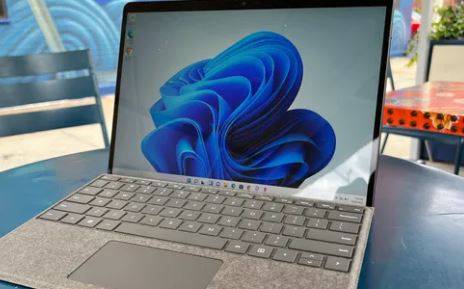In today's digital age, laptops have become an essential tool for both personal and professional use. With the plethora of options available on the market, it can be overwhelming to choose the right laptop that suits your needs.
Identifying a good laptop requires careful consideration of various factors, including performance, display quality, portability, battery life, connectivity options, build quality, and the choice of operating system. By evaluating these factors, you can make an informed decision and choose a laptop that meets your specific needs and preferences. Remember to do thorough research, read reviews, and compare different models before making your final purchase. Happy laptop hunting!
This blog post aims to provide you with a comprehensive guide on how to identify a good laptop, focusing on key factors that should be considered.
1. Performance:
One of the most crucial aspects of a good laptop is its performance. The performance of a laptop is determined by its processor, RAM, and storage capacity. Opt for a laptop with a powerful processor, such as an Intel Core i5 or i7, and at least 8GB of RAM. Additionally, a solid-state drive (SSD) or hybrid storage option can significantly enhance the overall performance of your laptop.
2. Display and Graphics:
The display quality of a laptop greatly influences the user experience. Look for a laptop with a high-resolution display, preferably Full HD or higher, for crisp and vibrant visuals. Additionally, if you plan to use your laptop for multimedia purposes or gaming, consider opting for a laptop with a dedicated graphics card.
3. Portability:
Portability is a crucial factor to consider, especially if you plan to carry your laptop around frequently. A good laptop should strike a balance between performance and portability. Look for a lightweight and slim design without compromising on essential features. Consider the size of the laptop, as it should be comfortable to carry and fit into your bag easily.

4. Battery Life:
Imagine being in the middle of an important task when suddenly your laptop runs out of battery. To avoid such situations, opt for a laptop with a long-lasting battery life. Look for laptops that offer at least 8 hours of battery backup on a single charge. This will ensure that you can work or enjoy multimedia content without constantly worrying about finding a power outlet.
5. Connectivity and Ports:
Consider the connectivity options and ports available on the laptop. Ensure that it has an adequate number of USB ports, HDMI or DisplayPort for connecting to external displays, an SD card reader, and a headphone jack. Additionally, check if the laptop has the latest Wi-Fi and Bluetooth versions for seamless connectivity.
6. Build Quality and Durability:
A good laptop should be built to last. Look for laptops made from durable materials, such as aluminum or magnesium alloy, which offer better protection against accidental drops or impacts. Pay attention to the keyboard and trackpad quality, as they significantly impact your typing and navigation experience.
7. Operating System and Software:
The choice of operating system depends on personal preference and specific requirements. Windows, macOS, and Linux are the most popular options. Consider which operating system aligns with your needs and offers the software compatibility you require for your work or hobbies.



No comments yet
Be the first to share your thoughts!